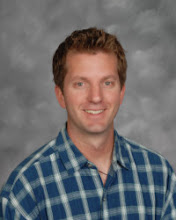Wednesday, May 1, 2013
Middle School Modeling: Integrated Math/Science
or My Apologies to the Scientists, Polya and All the Modeling Teachers Out There
I decided to go with a process rather than specific content in this class. I know stuff is going to be on the test and we need to cover it. But, I also know that my students will one day leave and go be anything but a scientist or a mathematician.
So I settled on asking students to question, think, plan, model/analyze and tell people about what they did. That's it.
Everything we did this semester followed this template. I found the following questions/directives to be helpful when turning students loose on a problem.
1. What's the problem?
I think we call this "inquiry", but I really don't know anymore. Does it count if I give the question?
2. What do you think the answer's going to be?
Props to Dan for making a guess be an explicit part of the lesson plan. Something I should've been doing 10 years ago but somehow didn't.
3. What smaller questions will you need to answer first?
This is tough. Students live in circular argumentation. I mean, c'mon kid, give me at least a spiral argument once in a while. The name of this blog should mean I have some grasp on the importance of questions, but I've never explicitly asked students to break larger questions into smaller manageable questions nor realized how badly students need help with this.
4. What's the plan for answering the smaller questions?
Two big take away here for students:
1. a good plan = good data = good analysis
2. plans change
5. Go do the plan. (ie. get your data)
See #4
6. Make sense out of the data.
This was the sweet spot. How can math be used to turn data into an answer? Kids are getting the hang of this and it's fun to watch.
7. Answer your question.
Cross check the answer with the guess.
8. Tell someone about it.
I use the word "presentation" very loosely here. This was anything from a write-up to a group presentation to an informal interview after an activity.
None of this is new. But, for some reason, it seemed new. The first few activities we did would focus on a particular piece (I'll blog about these--this year. Promise.). The challenging part was to keep from over-planning. Not because I'm that kind of teacher, but because the more I planned, the less students had to. And, well, #4. Oh, and time. It takes a lot more time to have students make the plan and we have bells.
Subscribe to:
Post Comments (Atom)





5 comments:
As a science fair judge, I have to say that the "wild-ass guess" is one of the worst things that middle-school teachers have students do.
A hypothesis is formed only after you have a model of your phenomenon—if fact, only after you have competing models. It is the prediction made by a model, and is only useful if the competing models provide different predictions.
So please, wean your students off of "guessing" and have them come up with multiple explanations that would result in different outcomes instead.
Who wrote "wild-ass guess?" Seems like you're putting words in Dave's mouth here.
There are wild-ass guesses. Then there are hypotheses that emerge from formal, deterministic models.
Then somewhere between those two are guesses that emerge from experience and informal models.
For example, I can make a fairly informed guess about whether or not the ball goes in the hoop without knowing any formal model of parabolic motion. It's informal but there's nothing wild about it.
I hope you're going to write a lot about this course, Dave.
@gas... If my students knew how to create formal models, then this class wouldn't exist. We are working from the informal to the formal. Perhaps what I'm calling a conclusion is what you'd call an hypothesis.
And...what Dan said.
Yes, Dan, I plan on writing a bit about this class. Not sure anything groundbreaking will come from the posts, though.
Any blog which starts with "wild-ass guess" should be well worth following. I always told my students, I taught 6th grade math-science-everything, that a hypothesis could only be made after thoroughly researching the topic at hand.
Scientists research and make reasonable hypotheses (or they don't stay scientists for long). Wild-ass guesses are for statisticians. (Lol)
Scott
I've used this model for both middle-school, junior high, and elementary school-aged brains (I work with neurologically different students) and I'm going to say "wild-ass guess" are what my students' hypotheses become, even after intense research.
I.e. in Dan's example, the ball in the hoop, I might have students' reasoning for a ball's movement involve gravity, sometimes it involves the student's individual action, sometimes the ball does it because "that's what balls do". There's a cognitive level of sophistication which has to be accounted for in the lesson. What I like about this approach is how the students' lead me to the level they need, rather than I assume they have it and I over-teach or under-teach them.
Good luck - I'm interested in seeing what you come up with. I will most likely get to teach a physics/STEM mix of classes next year and can't wait to bust out some experiments.
Post a Comment